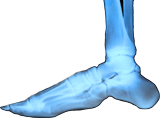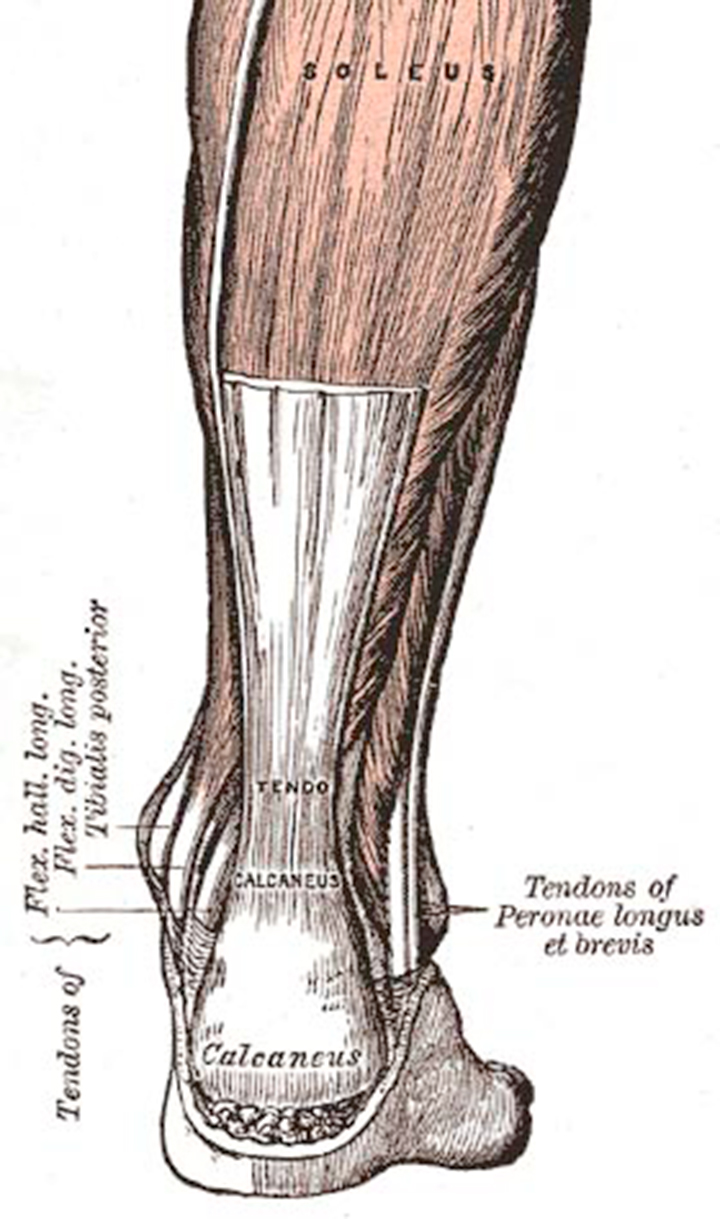
Affiliated Foot Care Center
Call 860•349•8500 or 203•294•4977

In Greek mythology, Achilles was a Greek hero of the Trojan War. He is the central character in Homer's Iliad. His mother was the nymph Thetis, and his father, Peleus, was the king of the Myrmidons.
During the Trojan War, Achilles slew Hector, a Trojan hero outside the gates of Troy. He is said to have been killed near the end of the Trojan War byl Paris, who shot him in the heel with an arrow. It was said that Achilles could not be harmed anywhere on his body, save his heel.
Today, the phrase Achilles Heel has come to mean a person's weak spot or point of weakness.
If your Achilles Tendon is your weak spot, call Dr. Fosdick today at 860•349•8500 or 203•294•4977 and make an appointment.
Achilles tendonitis, also sometimes called Achilles tendinitis, is a painful and often debilitating inflammation of the Achilles tendon (heel cord). The Achilles tendon is the largest and strongest tendon in the body. It is located in the back of the lower leg, attaches to the heel bone (calcaneus), and connects the leg muscles to the foot.
The Achilles tendon gives us the ability to rise up on our toes, facilitating the act of walking, and Achilles tendonitis can make walking almost impossible.
There are three stages of tendon inflammation:
Peritenonitis is characterized by localized pain during or following activity. As this condition progresses, pain often develops earlier on during activity, with decreased activity, or while at rest.
Tendinosis is a degenerative condition that usually does not produce symptoms (i.e., is asymptomatic). It may cause swelling or a hard knot of tissue (nodule) on the back of the leg.
Peritenonitis with tendinosis results in pain and swelling with activity. As this condition progresses, partial or complete tendon rupture may occur.
Initial treatment of damage to the tendon is generally nonoperative. Orthotics can produce early relief to the tendon by the correction of malalignments, non-steroidal anti-inflammatory drugs (NSAIDs) are generally to be avoided as they make the more-common tendinopathy (degenerative) injuries worse; though they may very occasionally be indicated for the rarer tendinitis (inflammatory) injuries. Physiotherapy by eccentric calf stretching under resistance is commonly recommended, usually in conjunction with podiatric insoles or heel cushioning. Dr Fosdick has also found that achilles tendonitis responds very well to high-powered laser therapy,